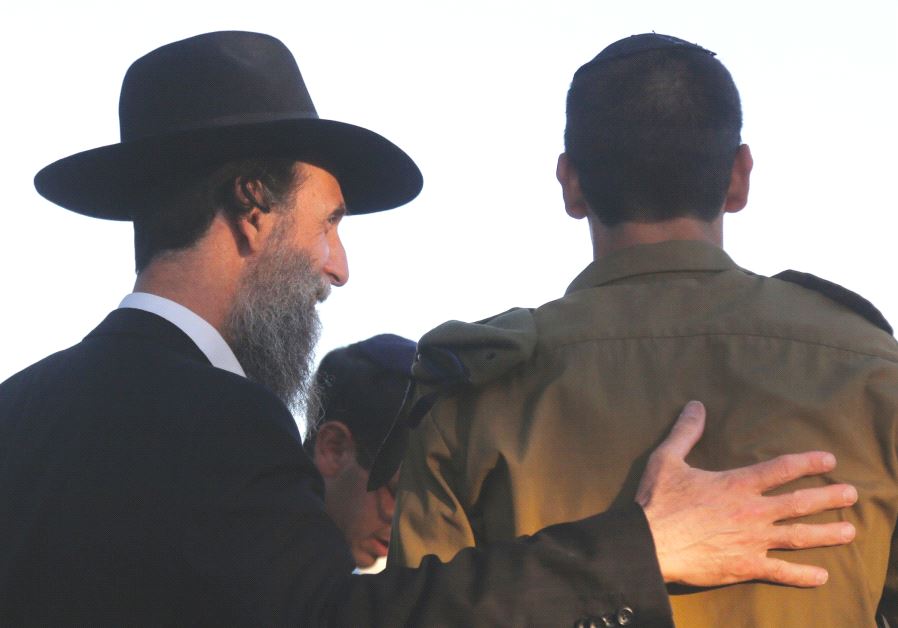Ultra-Orthodox and affirmative action: Justice and not charity
For the ultra-Orthodox sector and for us as a society, justice is not charity.
 A haredi man embraces a youth from the Orthodox community who has joined the army(photo credit: MARC ISRAEL SELLEM)
A haredi man embraces a youth from the Orthodox community who has joined the army(photo credit: MARC ISRAEL SELLEM)